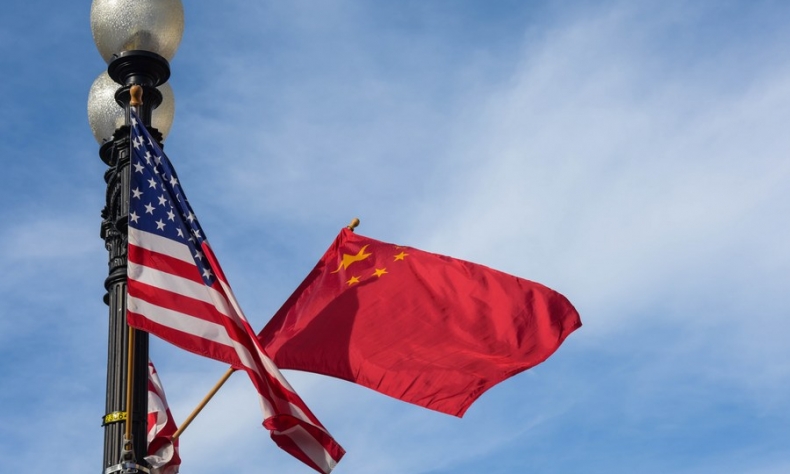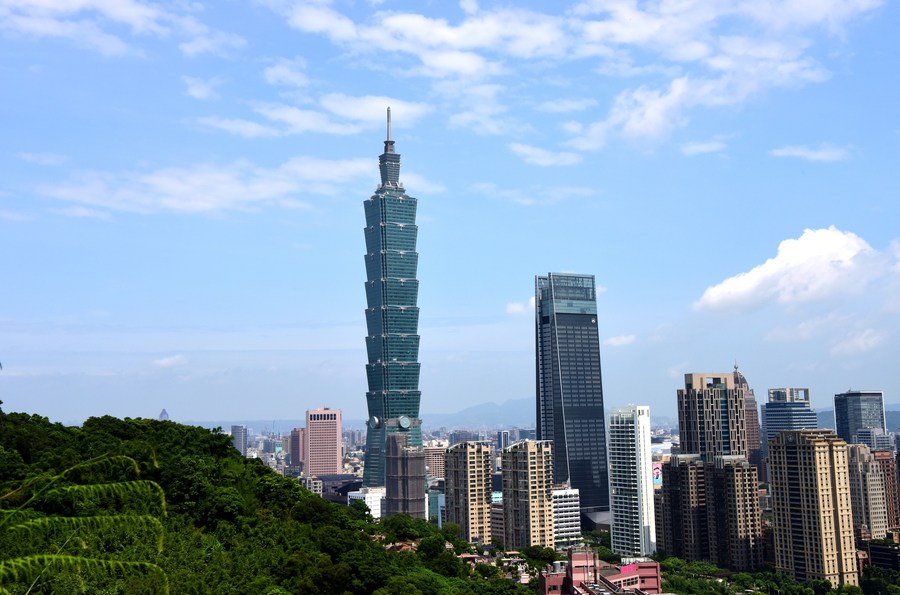Taiwan Remains the Most Sensitive Issue in Sino-U.S. Relations

The correct way out of this precarious setting—peaceful reunification—will ensure economic prosperity and social stability in Taiwan, and conforms to the overall interests of the Chinese nation to the largest extent.
Tensions across the Taiwan Straits have recently escalated due to actions on the part of several U.S. politicians as well as some pro-independence parties on the island. On October 26, U.S. Secretary of State Antony Blinken expressed his country’s “support” for Taiwan joining the United Nations, a blunt violation of the one-China principle. At the same time, the Taiwan authority is increasingly, and recklessly so, challenging the bottom line of the Central Government in Beijing. In her CNN interview on October 28, Taiwan leader Tsai Ing-wen confirmed that U.S. troops are training local military forces on the island, making Tsai the first Taiwanese authority to admit to the presence of U.S. military on the island.
The U.S. seeks to contain China by playing the Taiwan card, while the Democratic Progressive Party (DPP) authorities hope to realize “Taiwan independence” by relying on American military interference. Their involvement has inevitably stoked up indignation in the Central Government and in response, warplanes of the People’s Liberation Army (PLA) have conducted frequent patrols in the area.
In the face of these tensions, U.S. politicians and DPP authorities are blaming China for attempting to undermine the status quo across the Straits.
Yet what is the status quo of the region? The most striking state of affairs here is that both sides of the Straits belong to one China, a concept which has held up since the founding of the People’s Republic of China (PRC) in 1949 as well as the establishment of China-U.S. diplomatic ties in 1979. The Central Government, instead of damaging it, is trying to sustain the existing situation.

During their meeting at the Group of 20 Rome Summit on October 31, Foreign Minister Wang Yi made it clear to Blinken that Taiwan is the most sensitive issue in China-U.S. relations and once handled wrongly, it will cause subversive and overall damage to bilateral ties. Such stern wording is a relative rarity in the two countries’ diplomatic exchanges, implying China’s strong determination and unshakable stance on safeguarding the status quo in the region and the unity of the country at large.
There is only one China and the Government of the PRC is the only legitimate organ to represent it. This notion is one widely recognized around the world and more than 180 countries have established diplomatic ties with China on the basis of adhering to the one-China policy, including the U.S. through the Three Joint Communiqués (a collection of three joint statements made by the governments of the U.S. and the PRC). The U.S. has recognized Beijing as the only legitimate administration of China and as such, it can conduct cultural, business exchanges and other non-official exchanges with Taiwan under this framework.
Taiwan, in turn, is free to attend international activities, such as technical meetings of the World Health Organization, provided it follows the one-China principle when participating.
However, the DPP authorities opt to stubbornly stick to the position of “Taiwan independence.” This obstinacy poses the biggest threat to peace and stability across the Straits. The root of the current issues in the region lies in the fact that Taiwan authorities have repeatedly tried to break through the one-China framework. The American connivance and support for “Taiwan independence,” too, is to blame, said Wang Yi.
The Taiwan question is a matter of China’s internal affairs. Just as President Xi Jinping pointed out before, the Taiwan question arose from the weakness and chaos of the Chinese nation and will be resolved as national rejuvenation becomes a reality. The future is determined by the general tendency of shared history and, more importantly, reflects the common desire of all Chinese people.
The correct way out of this precarious setting—peaceful reunification—will ensure economic prosperity and social stability in Taiwan, and conforms to the overall interests of the Chinese nation to the largest extent.
 Facebook
Facebook
 Twitter
Twitter
 Linkedin
Linkedin
 Google +
Google +










